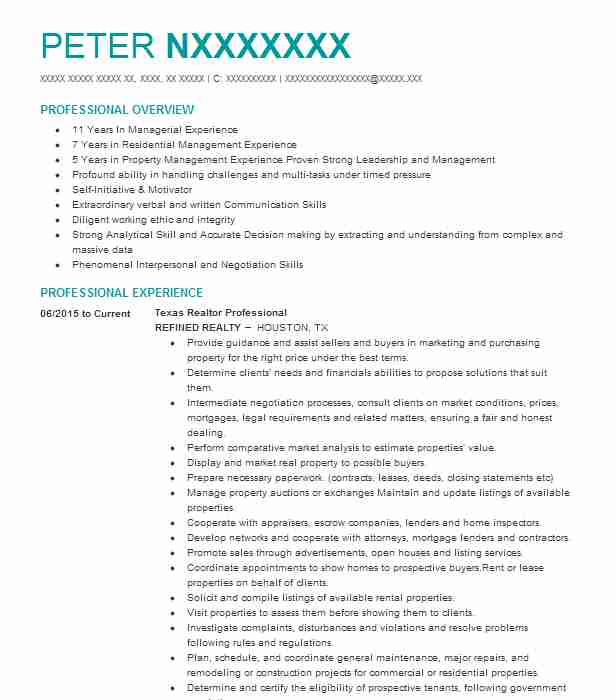
You may be interested in California real estate licensing. Learn more about the requirements and costs. Be sure to understand the forms that you will need to include with your application. These forms will help you prepare for your licensing exam. You will find the following article provides an overview and instructions on how to fill out the necessary forms.
California real estate license requirements
You must first complete the pre-licensing requirements to become a licensed California agent. These must include three semester-units or four quarter-units at the college level. They must be done at an institution of higher educational that is accredited either by the Western Association of Schools and Colleges of a regional agency or an institution of higher-learning. Additionally, you must complete 45 hours of real estate-related training from a private real estate school approved by the California Real Estate Commission.
You must complete an application and submit your fingerprints for the DOJ's Live Scan program. These fingerprints will serve as background checks. You will have to arrange a convenient time to take the fingerprints; these fees are nonrefundable.

California real estate license fees
The first step in getting a real estate license in California is to apply for it. You can do this by applying online or attending a real estate school. There are a number of benefits to this approach, including the chance to learn in a supportive environment, while also saving time and money. Be aware, however, that California real-estate licenses have certain requirements and fees.
The cost of obtaining a salesperson's license in California is $60, while obtaining a broker's license costs $95. The state's eLicensing program allows applicants to apply for California real estate licenses. Both license types require passing an exam. The exam covers 150 multiple-choice and lasts for three hours. For the broker license, the exam takes four hours and involves 200 multiple-choice questions. For a license to be issued, you must score at least 70 percent.
The forms to be included with a realty license application
One of the first steps to become a real estate agent in California is to apply for a real estate license. To be a licensed agent you must have completed the required coursework. This includes both full-time as well as part-time jobs. Once you have submitted your application, a packet with information will be sent to you containing all the forms and instructions.
Also, you will need to complete a fingerprint form. This form must be submitted to the Bureau of Real Estate P.O. Box 137002 in Sacramento, California. If you want to open a branch office, you may need to fill out a Branch Office License App.

Next, you will need to include the Salesperson License Application. You must also pay the applicable fee. Then, you must complete a Consent to Service of Process form if you live out of state. You must complete this form within one year of passing your salesperson exam. To ensure that you meet all requirements, keep a checklist. This will save time in the future.
FAQ
Can I get another mortgage?
Yes. But it's wise to talk to a professional before making a decision about whether or not you want one. A second mortgage can be used to consolidate debts or for home improvements.
Do I need a mortgage broker?
A mortgage broker is a good choice if you're looking for a low rate. Brokers have relationships with many lenders and can negotiate for your benefit. Some brokers receive a commission from lenders. Before you sign up for a broker, make sure to check all fees.
What is reverse mortgage?
A reverse mortgage is a way to borrow money from your home without having to put any equity into the property. It allows you access to your home equity and allow you to live there while drawing down money. There are two types: government-insured and conventional. Conventional reverse mortgages require you to repay the loan amount plus an origination charge. FHA insurance covers repayments.
How much does it cost to replace windows?
Window replacement costs range from $1,500 to $3,000 per window. The cost of replacing all your windows will vary depending upon the size, style and manufacturer of windows.
Is it possible sell a house quickly?
You may be able to sell your house quickly if you intend to move out of the current residence in the next few weeks. You should be aware of some things before you make this move. You must first find a buyer to negotiate a contract. Second, you need to prepare your house for sale. Third, you need to advertise your property. Finally, you need to accept offers made to you.
How can I determine if my home is worth it?
You may have an asking price too low because your home was not priced correctly. A home that is priced well below its market value may not attract enough buyers. Our free Home Value Report will provide you with information about current market conditions.
Statistics
- It's possible to get approved for an FHA loan with a credit score as low as 580 and a down payment of 3.5% or a credit score as low as 500 and a 10% down payment.5 Specialty mortgage loans are loans that don't fit into the conventional or FHA loan categories. (investopedia.com)
- The FHA sets its desirable debt-to-income ratio at 43%. (fortunebuilders.com)
- Private mortgage insurance may be required for conventional loans when the borrower puts less than 20% down.4 FHA loans are mortgage loans issued by private lenders and backed by the federal government. (investopedia.com)
- This means that all of your housing-related expenses each month do not exceed 43% of your monthly income. (fortunebuilders.com)
- 10 years ago, homeownership was nearly 70%. (fortunebuilders.com)
External Links
How To
How to Find an Apartment
When moving to a new area, the first step is finding an apartment. This takes planning and research. It includes finding the right neighborhood, researching neighborhoods, reading reviews, and making phone calls. This can be done in many ways, but some are more straightforward than others. Before you rent an apartment, consider these steps.
-
Researching neighborhoods involves gathering data online and offline. Online resources include Yelp and Zillow as well as Trulia and Realtor.com. Local newspapers, real estate agents and landlords are all offline sources.
-
You can read reviews about the neighborhood you'd like to live. Review sites like Yelp, TripAdvisor, and Amazon have detailed reviews of apartments and houses. You may also read local newspaper articles and check out your local library.
-
You can make phone calls to obtain more information and speak to residents who have lived there. Ask them what they liked and didn't like about the place. Also, ask if anyone has any recommendations for good places to live.
-
Consider the rent prices in the areas you're interested in. Consider renting somewhere that is less expensive if food is your main concern. On the other hand, if you plan on spending a lot of money on entertainment, consider living in a more expensive location.
-
Find out more information about the apartment building you want to live in. Is it large? What's the price? Is it pet-friendly? What amenities are there? Is it possible to park close by? Do you have any special rules applicable to tenants?